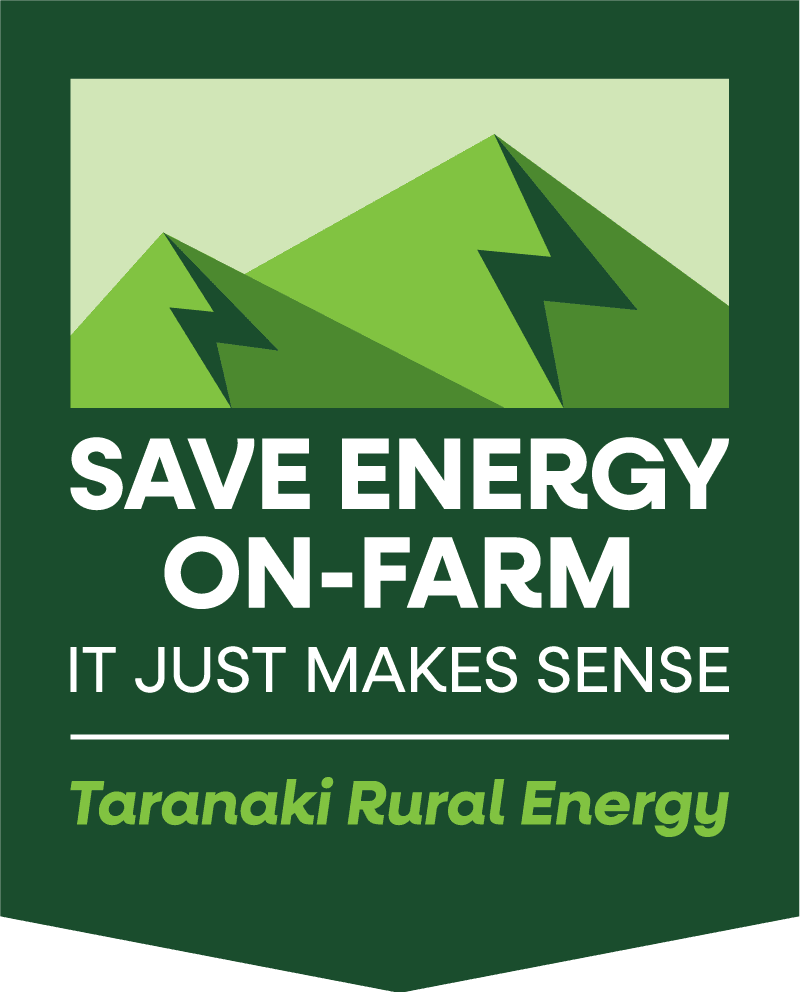Energy opportunities
Top 5 quick energy opportunities
“Getting solar and closing our water systems was going to pay for itself in less than two years. I want to hand the farm on to the next generation in the best shape for them to be successful.”
- Angie, Southland farmer
Taking action
TOP FIVE QUICK ENERGY OPPORTUNITIES | YOUR QUICK STEPS | |
|---|---|---|
Tane chose LED lighting simply for better light. Changing the most used lights, and adding a switch to turn these on/off, boosts savings. For Angie, timers were a simple step to bill savings (and carbon cuts) for hot water cylinders, ice banks and effluent pumps. The electrician helped calculate loads, run times and settings, and installed timers for best use of solar PV. Pete gets multiple benefits with efficient pumping with variable speed drives Debbie cut her exposure to energy price rises and prepared for resilience by adding solar panels on the farm. She ensured proper design for actual daytime loads that helped the payback. Timers on hot water cylinders, ice banks and effluent pumps means that when we use power better matches solar PV. Doing ground works themselves helped cut costs - but installers were happy to do everything too. | Insulate VATs Wrap hot water cylinder, lag pipes and fix leaks Install variable speed drives and pump controllers (e.g.F60s) Install LED lighting Install timers Install solar panels (PV) Financial insights are illustrative based on generic information. Specific sizing, costing and benefit assessments are recommended. Version 14/1/24 |
Are these top energy saving investments in your Farm Plan?
"We wanted a farm that was labour efficient. So, we needed to invest in good automation and monitoring. As an off shoot we also got energy efficiency. Our rule was payback within half the warrantied life” - Pete, Southland farmer
Hot water heat pump | Heat recovery | Snap chilling | Yard washdown | Precision Irrigation | |
|---|---|---|---|---|---|
Replace cylinder(s) with hot water heat pumps. Running costs 25-35% of old cylinders; 50% of gas hot water, but re-plumbing needed | Hot water for cleaning is pre-heated. This is from the waste heat in chilling and dumped wash water. Can reduce water needs/ waste and improve farm resilience (less energy needed). | 30% energy efficiency for cooling, plus heat recovery. Higher capital cost options often save more over life and cut emissions. FarmSource partners are Coolsense (incl. Fonterra exclusive Pay As You Save – PAUS - option) and DTS.. | Consider water and effluent savings by moving away from a high water use wash system. You can make the most energy savings where there is significant pumping (distance or elevation). Consider installing a low water system e.g. a "dung buster" scraping system on backing gate. | Precision irrigation claims up to 50% water reductions. Energy savings are a byproduct. Nanobubble technology can also save 15-25% (not in costs/ savings below). |
Hot water heat pump | Heat recovery | Snap Chilling | Snap Chilling | Yard Washdown | Precision irrigation | ||
|---|---|---|---|---|---|---|---|
PAUS | Own | ||||||
Savings | 50&+ | 30%/ $10,000k pa | Lower | 30% | Good | Good | |
Investment | $10,000 | $45,000 | Minor | High | Minor increment | Minor encrement | |
Payback years | 11 | 4-5 | <1 | Varies | Short | Short |
Taking action
TOP ENERGY SAVINGS FOR YOUR FARM PLAN
Plan now for renewals Estimate renewal date Update your Farm Plan Talk to supplier(s) | Hot water heat pump to replace cylinder Install heat recovery Install snap chiller Yard Washdown Precision irrigation | Hot water heat pumps are energy efficient so ideal for Sue's new shed. More work e.g. re-piping is needed for replacements of existing cylinders. For Ray, assessing the best heat recovery option well ahead of chiller replacement not only saves on hot water, but gets it quicker – reducing risk. For Bob, choosing a snap chiller was about milk quality. But for the same or little extra money, energy efficiency and reduced greenhouse gases boosted the benefits. Adding the scraping gate has helped Chris cutting effluent and water use, with the bonus of energy savings on reduced pumping. Smartly irrigating, for Mark, drives water use and stock health, but planning for energy efficiency adds to the return. Financials are illustrative based on generic information. Specific sizing, costing and benefit assessments are recommended. Version 14/1/24 |
Dairy shed | Diesel and time savings | ||
|---|---|---|---|
Plant renewal plans | Plan in place for what to buy when you have plant failure Energy efficiency included as part of that decision | Feeding practices | Feed stored in more than one location to save time and reduce tractor miles |
Plant service schedules | Your refrigerant plant is checked annually Your milk plant is checked annually, e.g. vacuum regulation, airflow, leaks, drive belt Water leaks are spotted quickly (e.g. excess pumping) | Frequency, choice | Plan for multi-purpose trips to save time and fuel Use the smallest appropriate vehicle for the job at hand (tractor size, ute, quad, motor bike) Check tractor servicing, tyre pressures and choose settings for the job/ load (check visor/ manual quick guide) Electric options include ubco or e-bike, Tuatara electric quad, electric ute and tractor (light duties only, high cost) assessed |
Set point temperatures | Your hot water cylinder temperature is checked and optimum (55C at end of wash) You have considered a hot water wash every second day (efficient plant set ups) Regular temperature check of your milk cooler water and milk outlets | Using contractors | Using contractors more often as they tend to have right sized and most modern vehicles, reducing fuel and carbon |
Switch off unused plant | Unused hot water cylinders Lights off after milking Your pumps | Herd wearables | Assess energy efficiency gains when assessing wearables g If using them, reducing the frequency of trips (miles) as wearables allow. |


